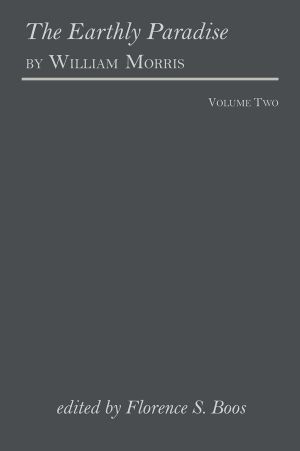The Earthly Paradise by William Morris

- Authors
- Morris, William,Boos, Florence Saunders
- Publisher
- Routledge
- Tags
- poetry
- ISBN
- 9780415941501
- Date
- 1868-01-01T00:00:00+00:00
- Size
- 5.75 MB
- Lang
- en
A new critical edition of a literary masterpiece.
A farsighted Victorian, William Morris was a pioneering socialist, book designer and decorative artist, founder of the Society for the Protection of Ancient Buildings, and author of intense short lyrics, long poetic narratives, and utopian-socialist prose romances. This annotated critical edition is the first attempt to make Morris's 42,000 word verse sequence accessible to a modern audience. The edition's scholarly apparatus also records the location of extant manuscripts and provides full scholarly collations of changes made in Morris's text during his lifetime.
Extensive reader aids for enhanced comprehension
A full introduction to the edition also clarifies the work's publication history and literary and biographical content, its historical antecedents in traditional "earthly paradise" narratives, and Morris's decision to cast it as a seasonal cycle of monthly "classical" and "medieval" tales. Morris's opening Prologue records the struggles of 12 Scandinavian seafarers who have fled the Bubonic Plague to a landfall in 14th-century Greece, and he arranged the 24 monthly tales to explore the collective memories of these wanderers and their choral audience of Greek elders. The edition's critical headnotes comment on Morris's historicism, reflected in the extended manuscripts' many revisions of his classical, medieval, Germanic, Scandinavian, Arabic, and Persian sources.
A wealth of references relating the work to art, history, and politics
Morris's practical knowledge, passion for travel, and radical-democratic convictions also prompted him to explore areas of life not commonly associated with Victorian poetry. The edition's footnotes therefore gloss allusions to bird and animal lore, the practices of ancient and medieval agriculture, and the details of Viking ships and medieval seafaring. Morris also wove many new imaginative details into his redactions of these legends, and the headnotes assess whether he followed his sources, drew on roughly analogous characters encountered elsewhere, or completely reinvented familiar characters. They also comment on several of Morris's deeper authorial decisions—to portray women more favorably, for example; or focus on particular aspects of the Bubonic Plague; or insert pointed glosses of 'heroic' events by wary peasant bystanders—and examine them in the light of Morris's other published views on art, history, politics, and human relations.
Ample illustrations and original initials, finally, provide a sense of original appearance and design of The Earthly Paradise. The edition has one overriding aim: to encourage the reader to explore the weft and texture of one of the most beautiful verbal tapestries any English poet ever wrought.